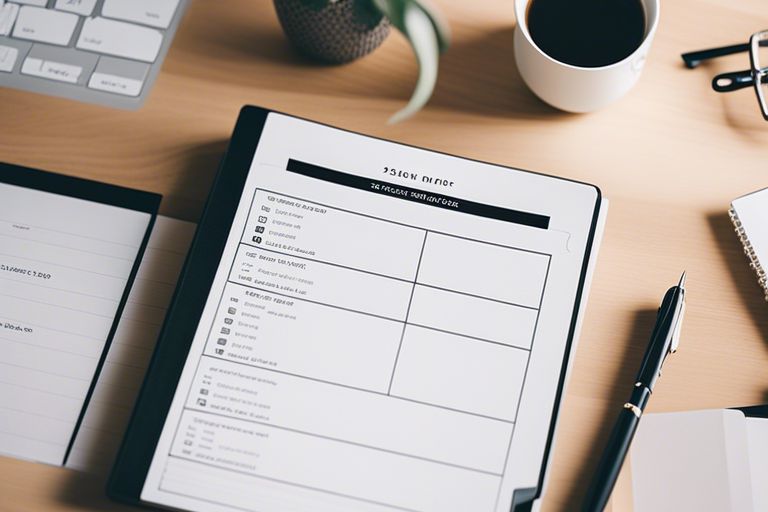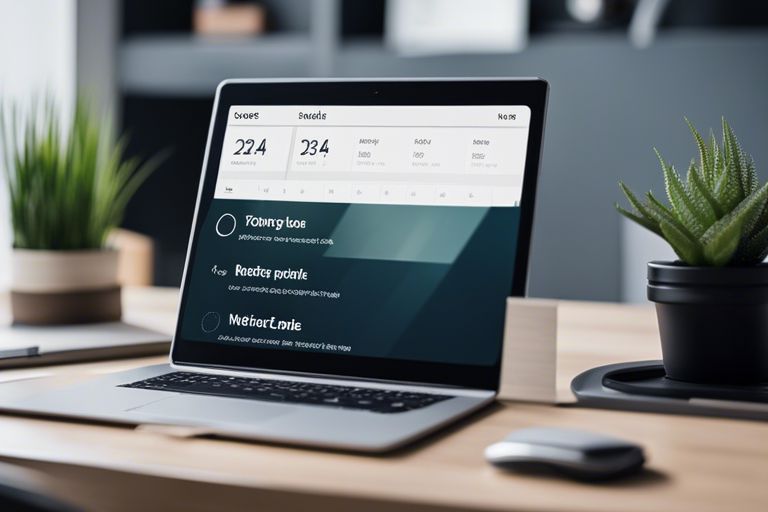Are you looking for ways to boost your productivity and enhance your job performance? Look no further than the power of mindfulness. Mindfulness, a practice rooted in awareness and being present, has been proven to have a positive impact on focus, stress reduction, and overall productivity. By incorporating mindfulness into your daily routine, you can unlock your full potential and achieve greater success in the workplace.
Research has shown that mindfulness techniques can increase brain wave activity associated with relaxation and creativity. By practicing mindfulness, you can improve the functioning of the prefrontal cortex, the part of the brain responsible for focus, decision-making, and emotional regulation. This leads to improved memory, better decision-making skills, and reduced stress levels.
Embracing mindfulness in the workplace offers a myriad of benefits. It enhances your ability to stay focused on tasks, improves memory retention, and promotes better decision-making. In addition, mindfulness reduces stress, boosts creativity, and contributes to overall happiness.
So, if you’re ready to take your productivity to the next level and enhance your job performance, it’s time to embrace mindfulness. Incorporate mindfulness techniques into your daily routine and watch as your focus, creativity, and overall well-being soar. Don’t wait any longer, start practicing mindfulness for productivity today!
Understanding Mindfulness and its Effects
Mindfulness is a powerful practice that can have a profound impact on our daily lives, including our productivity and overall well-being. At its core, mindfulness is about being fully present and aware of the current moment, without judgment or distraction. While meditation is often associated with mindfulness, it is just one of the ways to cultivate this state of being.
Mindfulness encourages us to pay attention to the process rather than being solely focused on the outcome. It invites us to engage fully in our tasks, whether it’s completing a project or having a conversation, without being consumed by future worries or expectations. By embracing this mindset, we can reduce stress, enhance focus, and find a sense of fulfillment in the present moment.
Being present and practicing mindfulness allows us to tap into our inner resources and make conscious choices. It helps us become more aware of our thoughts, emotions, and reactions, enabling us to respond rather than react impulsively. This heightened self-awareness can improve our decision-making abilities, problem-solving skills, and overall emotional well-being.
The Power of Meditation
One of the most popular techniques for cultivating mindfulness is meditation. Regular meditation practice trains our minds to become more focused and present. It involves dedicating a specific time, even just a few minutes each day, to sit quietly and observe our breath, thoughts, and bodily sensations.
Through meditation, we develop the ability to anchor our attention in the present moment, cultivating a sense of calm and clarity. It helps us build resilience in the face of challenges and cultivates a compassionate attitude towards ourselves and others. Meditation can be a transformative practice that supports us in living with greater awareness, intention, and inner peace.

Being Present in Every Aspect of Life
While meditation is a powerful tool, mindfulness is not confined to the moments we spend on the cushion. It is a way of being that can be integrated into every aspect of our lives. By practicing mindfulness in our daily activities, whether it’s eating, walking, or engaging in conversation, we can cultivate a deeper sense of connection, appreciation, and joy.
Mindfulness is not about striving for perfection or achieving a particular outcome. It is about recognizing that each moment is an opportunity for growth, learning, and presence. By embracing the principle of process over outcome, we can tap into the inherent wisdom and potential that resides within us and enhance our overall well-being.
How Mindfulness Affects the Brain
Research has shown that mindfulness practices, such as meditation, have a direct impact on the brain and its functioning. One key finding is that mindfulness increases alpha wave activity, which is linked to a relaxed state of mind and enhanced creativity. By promoting a sense of calm and openness, mindfulness helps individuals to reduce stress and improve their ability to focus.
Furthermore, mindfulness training has been found to enhance working memory by reducing mind wandering and proactive interference. This can greatly benefit individuals in the workplace by allowing them to stay more focused and better retain information. The prefrontal cortex, which is responsible for conscious thought, reasoning, and emotional regulation, is also strengthened through mindfulness practice. This leads to improved decision-making, concentration, and memory.
In summary, mindfulness has a profound effect on the brain. It increases alpha wave activity, leading to a relaxed and creative state of mind. Additionally, it enhances working memory and strengthens the prefrontal cortex, resulting in improved focus, decision-making, and memory. By understanding how mindfulness affects the brain, individuals can harness its power to enhance their productivity and overall well-being.

The Benefits of Mindful Productivity
Mindful productivity offers a range of benefits in the workplace. By cultivating attention and reducing mental multitasking, individuals can stay focused and engaged in their tasks. This allows for greater efficiency and accuracy in completing work. With mindfulness, there is a heightened awareness of distractions, leading to better decision-making and the ability to prioritize tasks effectively.
One of the key benefits of mindful productivity is the ability to counteract negative fantasies. It is common for individuals to worry excessively about future outcomes, leading to unnecessary stress and anxiety. However, by staying present and focused on the task at hand, mindfulness helps individuals let go of these negative thoughts and focus on what they can control in the present moment.
Active listening is another skill that is enhanced through mindful productivity. By being fully present and engaged in conversations, individuals can improve their communication skills and build stronger relationships with colleagues. This fosters a more positive work environment and promotes collaboration and teamwork.
Burnout prevention
Mindful productivity also serves as a preventive measure against burnout. By managing stress levels and supporting overall well-being, mindfulness helps individuals maintain a healthy work-life balance. It encourages self-care practices and promotes a sense of fulfillment and satisfaction in one’s work.
Overall, embracing mindful productivity in the workplace leads to improved attention, reduced mental multitasking, less negative fantasies, active listening, and burnout prevention. It fosters a more focused, engaged, and harmonious work environment, benefiting both individuals and the organization as a whole.

Principles of Mindful Productivity
When it comes to enhancing productivity and well-being in the workplace, practicing mindfulness is key. By incorporating the principles of mindful productivity into your daily routine, you can create a more focused, stress-free, and growth-oriented work environment.
Staying Present in the Present Moment
Mindful productivity starts with being fully present in the current moment. By consciously directing your attention to the task at hand, you can minimize distractions and maximize your focus. Embracing the present moment allows you to fully engage with your work, leading to increased efficiency and effectiveness.
Managing Stress and Cultivating Focus
Stress management is an essential aspect of mindful productivity. By practicing stress-reducing techniques such as deep breathing, meditation, or taking short breaks, you can better regulate your stress levels and maintain a clear mind. Cultivating focus involves directing your attention towards the most important tasks, prioritizing them, and avoiding multitasking, which can lead to decreased productivity.
Fostering Curiosity and Adopting a Growth Mindset
A curious mind is an open mind. Fostering curiosity allows you to approach challenges and tasks with a sense of discovery and exploration. It promotes a growth mindset, where you see obstacles as opportunities for learning and growth. Embracing a growth mindset enhances your problem-solving skills and enables you to adapt to new situations with ease.
Applying Metacognitive Strategies and Creating a Conducive Work Environment
Metacognition refers to the ability to think about your own thinking process. By being aware of your thoughts, emotions, and mental states, you can better understand how they affect your productivity. Employing metacognitive strategies such as setting clear goals, breaking tasks into manageable steps, and reflecting on your progress can help optimize your productivity. Creating a conducive work environment involves minimizing distractions, organizing your workspace, and surrounding yourself with supportive and positive influences.
Remember to take mindful breaks throughout the day to give yourself time to recharge and reset. These breaks can be as simple as taking a short walk, practicing deep breathing exercises, or engaging in a quick mindfulness meditation. By incorporating these principles of mindful productivity into your work routine, you can enhance your focus, manage stress effectively, foster curiosity and growth, optimize your work environment, and ultimately improve your overall productivity and well-being.
Incorporating Mindfulness into Daily Work Routine
Integrating mindfulness into your daily work routine can greatly enhance productivity and overall well-being. By adopting mindful practices, you can manage interruptions, improve time management, prioritize tasks effectively, and create a more mindful work environment. Here are some strategies to help you incorporate mindfulness into your daily work routine.
Managing Interruptions
Interruptions can disrupt focus and productivity. To manage interruptions mindfully, set boundaries and communicate your availability to colleagues. Allocate specific time slots for uninterrupted work and use tools like noise-canceling headphones to create a focused environment. By minimizing interruptions, you can maintain a steady workflow and enhance productivity.
Effective Time Management
Time management is crucial for maintaining a mindful work routine. Prioritize tasks based on importance and urgency. Break larger tasks into smaller, manageable chunks, and allocate specific time slots for each task. Avoid multitasking and instead focus on one task at a time. This mindful approach to time management can increase efficiency and reduce stress.
Mindful Email and Meeting Practices
Emails and meetings can consume a significant amount of time and energy. To incorporate mindfulness into your email practices, set aside specific times to check and respond to emails rather than constantly checking throughout the day. Practice active listening during meetings by fully engaging in the conversation and avoiding distractions. Mindful email and meeting practices contribute to clearer communication, improved collaboration, and better focus.

By integrating these mindfulness strategies into your daily work routine, you can create a more focused, productive, and balanced work environment. Mindfulness allows you to manage interruptions, prioritize tasks effectively, and engage in mindful email and meeting practices. Embracing mindfulness at work can lead to increased productivity, reduced stress, and improved overall well-being.
Mindfulness for Job Performance and Creativity
Mindfulness is not only a tool for reducing stress and enhancing focus, but it also plays a critical role in job performance and creativity. By incorporating mindfulness practices into our daily work routine, we can optimize our workflow and tap into our full potential.
Peak Performance
Mindfulness promotes focus and reduces distractions, enabling us to achieve peak performance in our work. By practicing mindfulness, we can train our minds to stay present and fully engaged in the task at hand. This heightened focus allows us to complete our work more efficiently and effectively, leading to improved job performance and productivity.
Creativity and Problem-Solving
Mindfulness also nurtures creativity and enhances problem-solving skills. By fostering divergent thinking and encouraging curiosity, mindfulness opens up new possibilities and perspectives. It helps us think outside the box, explore alternative solutions, and overcome mental blocks. By remaining present and aware, we can tap into our creative potential and approach problem-solving in innovative ways.
Workflow Optimization
Integrating mindfulness into our work routine can also optimize our workflow. Mindfulness helps us prioritize tasks, manage time effectively, and make conscious decisions about where to allocate our energy and attention. By reducing stress and promoting a balanced approach to work, mindfulness ensures that we work smarter, not harder. It allows us to focus on what truly matters and eliminate unnecessary distractions, resulting in a more streamlined and efficient workflow.

Incorporating mindfulness practices into our daily work routine can significantly enhance our job performance and creativity. By achieving peak focus, nurturing our creative thinking, and optimizing our workflow, we can unlock our full potential and thrive in the workplace. Embracing mindfulness not only benefits us individually but also contributes to a more productive and harmonious work environment.
Conclusion
Mindfulness for productivity offers numerous benefits for workplace well-being. By incorporating mindful productivity practices into your work routine, you can enhance your performance and satisfaction in the workplace. Mindfulness serves as a powerful tool for optimizing productivity, fostering creativity, and maintaining a healthy and balanced work environment.
Embracing mindfulness has a range of benefits, including improved focus, memory, decision-making, and stress relief. By being fully present and engaged in your tasks, you can tap into your creative potential and achieve peak performance. Mindfulness also promotes overall well-being by reducing stress levels and fostering a sense of fulfillment.
To practice mindful productivity, adopt principles such as staying present in the current moment, managing stress, and fostering curiosity and a growth mindset. Creating a conducive work environment and taking mindful breaks throughout the day are also important elements. By incorporating these practices, you can optimize your productivity and maintain your well-being in the workplace.
In conclusion, embracing mindfulness and incorporating it into your work routine can lead to improved job performance, reduced stress, and increased overall well-being. By reaping the benefits of mindful productivity, you can enhance your focus, creativity, and decision-making, ultimately achieving a greater sense of fulfillment in your professional life.







